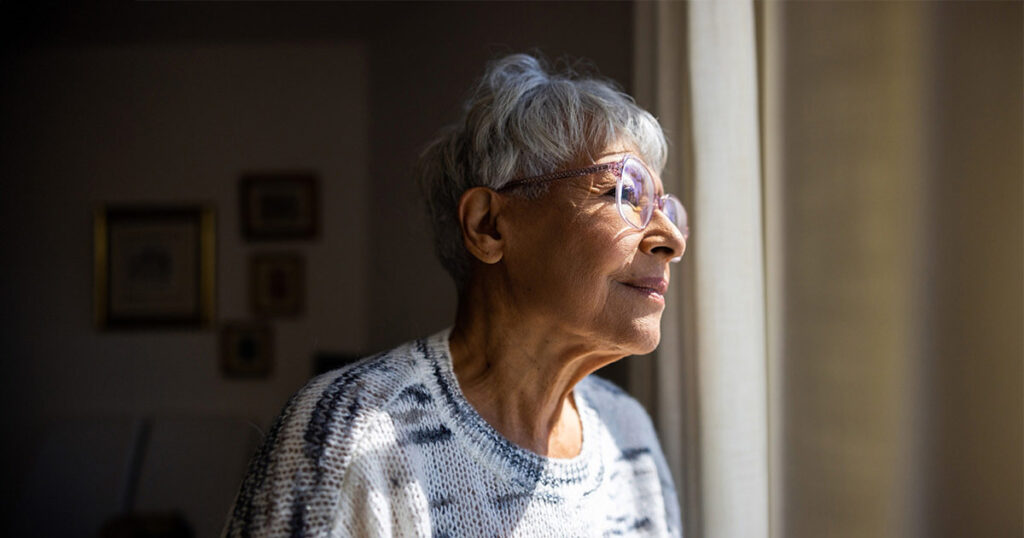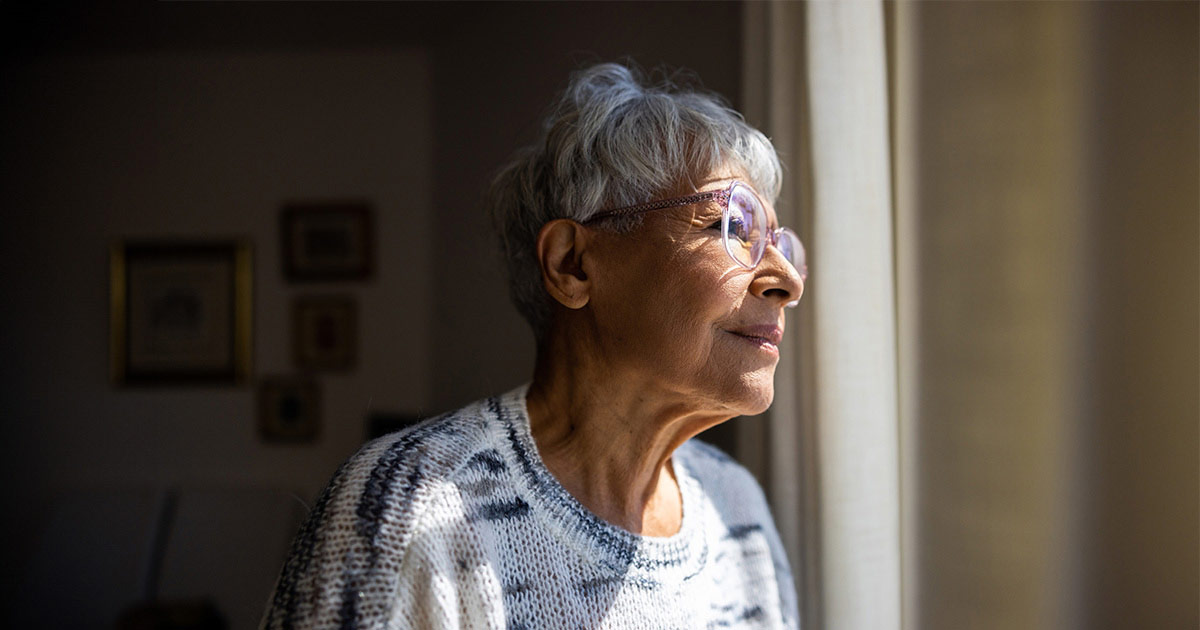A certain amount of forgetfulness is to be expected with age. Most people find it more difficult to recall names and words as they get older. However, normal forgetfulness is not a symptom or stage of Alzheimer’s disease or dementia.
Across the world, around 55 million people are living with Alzheimer’s disease or dementia, according to the Alzheimer’s Association. Although there is no cure for Alzheimer’s, there are treatments that may slow disease progression, aid symptoms or improve quality of life.
While treatments may vary from person to person, it’s always helpful to understand the stages of Alzheimer’s disease. That way you can feel prepared for what to expect as you or your loved one progresses.
What is Alzheimer’s disease?
While dementia is an overall term for a group of symptoms such as difficulties with memory, language, problem-solving and other thinking skills that impact a person’s ability to perform everyday activities, it is not the same thing as Alzheimer’s disease.
Alzheimer’s is “a type of dementia that affects memory, thinking and behavior,” according to the Alzheimer’s Association. It eventually leads to nerve cell death and tissue loss across the brain, causing the brain to shrink and lose most function.
Symptoms progress in stages that eventually interfere with daily tasks and living, causing patients with Alzheimer’s to become dependent on their caregivers.

Stages of Alzheimer’s disease
Alzheimer’s disease gradually diminishes a person’s ability to communicate or self-manage important tasks. This can present challenges for both the person living with Alzheimer’s and their caregivers.
To help you better prepare and understand what each stage of Alzheimer’s may look like, here is an outline of signs and symptoms to expect, as well as anticipated needs for the person with Alzheimer’s.
Mild cognitive impairment
This is an early loss of cognitive abilities oftentimes presenting as just increased forgetfulness. People in this stage of Alzheimer’s need minimal supervision and guidance from caregivers.
Signs and symptoms:
- Increased forgetfulness
- Minimal impact on daily life
The person with Alzheimer’s needs:
- Weekly supervision of finances, medications and safety
- Support and understanding
- Assistance with advance care planning
Early-stage Alzheimer’s
This is a moderate loss of cognitive ability, presenting more increased forgetfulness and inability to do everyday tasks as they once did. People in this stage of Alzheimer’s need weekly or daily supervision and support from their caregivers.
Signs and symptoms:
- Forgets appointments
- Trouble recalling words, names or places
- Issues managing money or keeping track of medications
- Unable to plan or organize
The person with Alzheimer’s needs:
- Weekly to daily supervision
- Safe environment
- Emotional support
- Effective management of medical conditions
- Active engagement and purpose
- Assistance with advance care planning
Middle-stage Alzheimer’s
This is a medium loss of cognitive ability, presenting communication and behavioral changes and challenges. People in this stage of Alzheimer’s need intermittent daily supervision and support from their caregivers.
Signs and symptoms:
- Increased difficulty with word finding and thought expression
- Losing train of thought
- Depression, anxiety, agitation or irritability
- Withdrawing socially
The person with Alzheimer’s needs:
- Extra time and patience
- Intermittent to 24-hour supervision
- Increased assistance with daily care needs
- Active engagement and purpose
- Advance care planning by the family
Late-stage Alzheimer’s
This is a severe or profound loss of cognitive ability, presenting an inability to communicate or recognize others or their surroundings. People in this stage of Alzheimer’s need 24-hour monitoring and support from their caregivers.
Signs and symptoms:
- Difficulty recognizing close friends or family
- Wandering
- Forgetting to eat or drink
- Anxiety and agitation
- Decreased sensory awareness below elbows or knees
- Overall physical health decline
The person with Alzheimer’s needs:
- Increased assistance with activities of daily living
- One-step commands and to receive information in short, clear sentences
- Increased time to respond
- Vigilance for swallowing, skin, nutrition and hydration
- Advance care planning by the family
How home health and hospice can help
Enhabit Home Health & Hospice clinicians recognize that living with memory and other cognitive changes can be challenging. Our clinicians are dedicated to recognizing a person with Alzheimer’s or dementia as an individual. They can assist with changes needed to age in place while maximizing independence and function.
Through our evidence-based Memory Care Program, the Enhabit care team can help by determining the level of cognition and stage of Alzheimer’s through common signs and symptoms. This allows the person with dementia and their caregiver the chance to plan for the future and determine what type of care is best.
Whether a person with Alzheimer’s or dementia is in need of home health, hospice or assistance with the transition from home health to hospice care, Enhabit can help facilitate the right care at the right time.
Alzheimer’s and home health support
Home health agencies, such as Enhabit, can provide skilled nursing, occupational, physical and speech therapies on a short-term (considered intermittent) basis. They can also provide a home health aide temporarily to assist with personal care needs until the person or family can resume or take over this care. These services may be covered by Medicare.
It is important to note that for a patient to be eligible for home health care coverage through Medicare, they must have a skilled need and be considered homebound by their physician. If these criteria are met and the physician determines aide services are needed, patients can add a home health aide to their care team.
Paid caregivers are paid for privately, or sometimes by a long-term care policy, and provide personal care, sitting, shopping and some household needs as agreed upon by the individual parties. These services are not covered by Medicare.
Alzheimer’s and hospice support
Hospice services may be needed in the later stages of Alzheimer’s disease or advanced dementia and are covered by Medicare. Hospice provides compassionate care, bringing dignity and comfort home with a team of professionals dedicated to providing physical, psychological, spiritual and emotional comfort.
If you have any questions or would like to learn more about how we provide high-quality, compassionate care to every patient wherever they call home, you can contact Enhabit here.
 Back to Resource library
Back to Resource library
